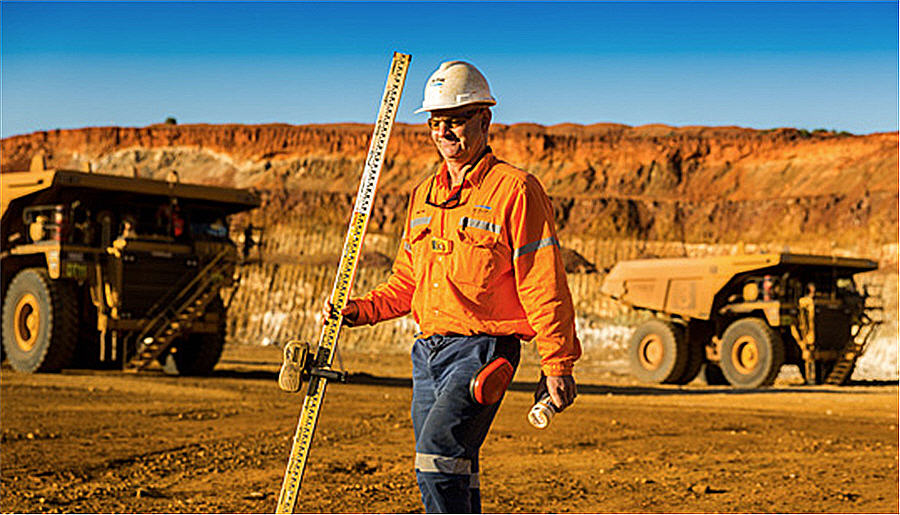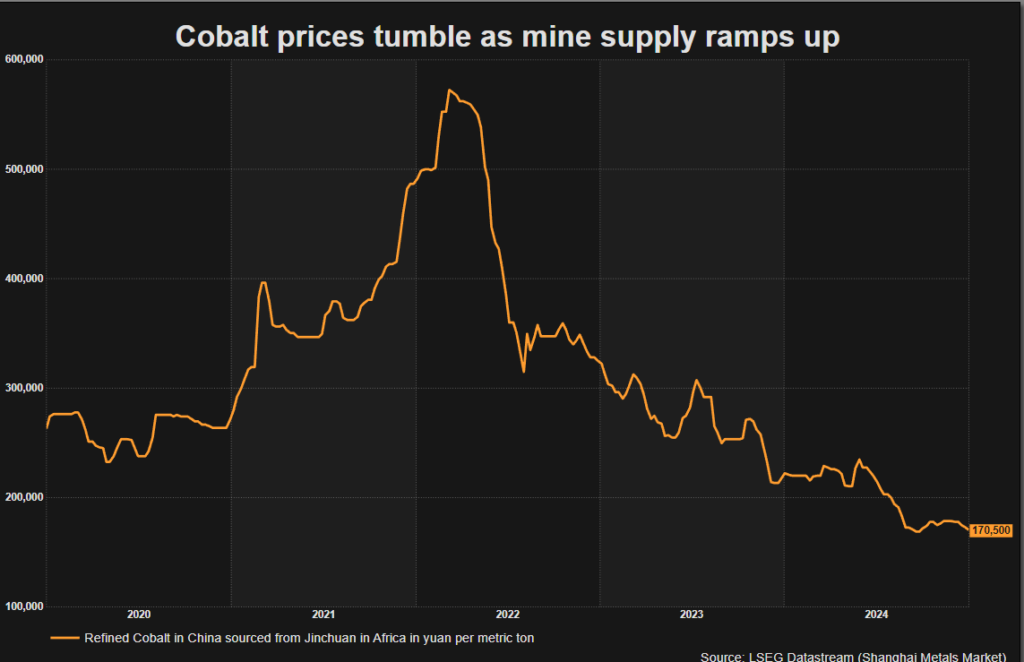Reuters | January 2, 2025

Image courtesy of Jervois Mining
Cobalt miner Jervois Global said on Thursday that one of its lenders will take the company private as part of a pre-packaged bankruptcy, the latest Western miner scrambling to survive as competition from China intensifies.

US fund manager Millstreet Capital Management will take control of Jervois as part of the pre-packaged Chapter 11 filing, inject $145 million into the company and convert more than $100 million of loans into equity.
Western miners and policymakers are in a precarious position as Chinese-linked companies boost production using safety and environmental practices that are often looser than those expected by many governments and manufacturers.
The deal will wipe out all existing shareholders in Jervois, which has not turned a profit in seven years. The company idled its Idaho cobalt mine in 2023, laying off 250 workers, weeks before it was set to open. That site was the only US source of cobalt, used to make electric vehicle batteries, electronics and a range of weapons.
“It’s been a difficult few years for us,” Jervois CEO Bryce Crocker told Reuters. “We needed to restructure.” The company has said the Idaho mine would not be viable until cobalt prices rise to about double their current level.
Jervois, which has received financial support from the US Department of Defense, began to struggle after China’s CMOC Group opened a mine in the Democratic Republic of Congo in 2023, pushing global production of the metal to an all-time high even as electric vehicle sales have failed to meet bullish forecasts.

Cobalt prices have plunged 72% since hitting a peak in April 2022, and shares in Australia-based Jervois have slid.
The price of another Jervois product, nickel, has fallen by more than half over the past two years.
Millstreet, which loaned $100 million for the Idaho project and $25 million to the company, will convert that debt into equity. That and the injection of $145 million into Jervois will allow the fund manager to take full control of its assets, which include a cobalt refinery in Finland and nickel refinery in Brazil.
Jervois had been working with an investment bank on potential funding arrangements since the Idaho site was mothballed. It hosted Millstreet at all three of its sites, Crocker said.
Ultimately, Millstreet decided it did not want to partner with other potential investors, a step that helped make negotiations straightforward, he added.
“Millstreet didn’t want to have other investors in there,” said Crocker, a former Glencore executive who joined Jervois in 2017. “There was a willingness on their part to equitize the debt.”
Representatives for Boston-based Millstreet were not immediately available to comment.
The company’s top two shareholders are Australia’s largest pension fund, AustralianSuper, and commodity trader Mercuria, with stakes of 23% and 7.6%, LSEG data showed.
AustralianSuper’s holding in Jervois almost tripled to roughly 400 million shares between June 2022 and June 2024, according to holdings data for its largest fund. Over the same period, the value of that shareholding fell to A$6 million from A$170 million.
AustralianSuper and Mercuria both declined to comment.
It was not immediately clear if Millstreet intends to re-domicile Jervois as a US-based company or if Millstreet will keep the existing Jervois management.
A $15 million grant from the Pentagon will be unaffected by the bankruptcy and continue to fund a study on whether Jervois should build a cobalt refinery in the US, Crocker said.
Jervois will continue to operate as normal during the bankruptcy, which is expected to be completed before the end of April.
The Idaho mine site is likely to remain mothballed until prices for the metal hit at least $20 per pound, roughly double current levels.
Jervois said last month US President-elect Donald Trump should eschew broad-based metals tariffs and instead encourage or even require manufacturers to buy cobalt from Western miners.
“These markets aren’t free, and governments need to decide if they want to rebalance the playing field,” said Crocker.
“The key message for the US government and others, is that while the shareholders of Jervois may be changing, the strategy to protect national security supply chains for cobalt has not.”
(By Ernest Scheyder, Eric Onstad, Clara Denina and Lewis Jackson; Editing by Jason Neely and David Gregorio)
No comments:
Post a Comment